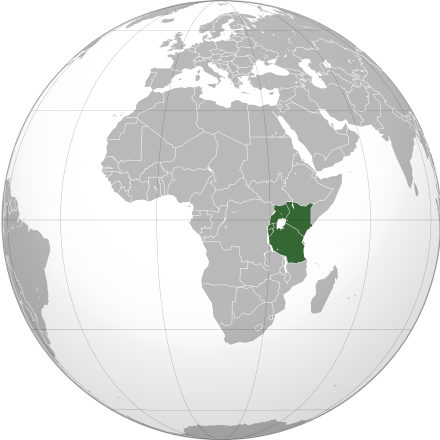Challenge to Ugandan anti-gay law seeks regional impact
Colin Stewart is a 45-year journalism veteran living in Southern…

Activists in Uganda are continuing their legal battle against the country’s now-defunct Anti-Homosexuality Law, hoping that the Tanzania-based East African Court of Justice will issue a ruling that will make clear such anti-gay laws are unacceptable throughout East Africa.
Uganda’s Constitutional Court overturned the law on Aug. 1 on procedural grounds — the lack of a quorum in Parliament — but did not address claims that the law violated Ugandan constitutional guarantees of human rights.
In a separate challenge filed earlier this year at the East African Court of Justice, activists have been seeking a ruling that the law violated provisions of the African Charter on Human and Peoples’ Rights, which Uganda accepted in joining the East African Community.
The challenge is being pursued by the Human Rights Awareness and Promotion Forum (HRAPF), which provides legal assistance to LGBTI defendants in Uganda, under the umbrella of the Civil Society Coalition on Human Rights and Constitutional Law (CSCHRCL), a coalition of 50 organizations opposed to the Anti-Homosexuality Act.

In an update about the case from HRAPF and CSCHRCL, they said that reasons for pursuing the case include:
“There are real chances of an amended Anti-Homosexuality Bill being brought to Uganda’s Parliament as well as to other parliaments in the region (most notably Kenya and Tanzania); if successful, the [case] would make clear to law makers that such a Bill would contravene the East African treaty.”
Member countries of the East African Community are Burundi, Kenya, Rwanda, Tanzania and Uganda.
Anti-gay legislators in Uganda have reportedly drafted a potential replacement for the overturned Anti-Homosexuality Act. Ugandan President Yoweri Museveni has not made clear whether he will block or accept that proposal.
The East African Court challenge will be modified to recognize that the Ugandan law has been overturned and to urge the court to consider the case, as it has in the past in rulings related to repealed laws. Adrian Jjuuko, executive director of HRAPF, argues that the East African Court has said that “correction of what was done wrong does not take away the fact that the violation occurred. Thus, nullification of the law does not take away the fact that enactment was in violation of the EAC [East African Community] Treaty provisions.”
The challenge will be limited to three sections of the Anti-Homosexuality Law:
- A section that grants immunity against prosecution to “victims” of homosexuality who commit crimes when “protecting” themselves against homosexuality.
- A section that forbids aiding and abetting homosexuality.
- A section “on promotion of homosexuality, which provisions are directly in violation of the fundamental principles of good governance, rule of law and human rights, enshrined in the EAC Treaty.”

During a scheduling conference on Nov. 6, HRAPF attorneys Ladisalus Rwakafuuzi and Fridah Mutesi represented the challengers. The East African Court gave them 60 days to amend their case, after which Ugandan Principal State Attorney Patricia Mutesi will have 60 days to reply.
“In practical terms, this gives us exactly two calendar months” to respond to the court, Jjuuko stated. “Therefore by 6th January 2015 all should have been filed, and the Attorney General should have filed by 6th March 2015. It is only then that the Court will set up a new date for scheduling and for the hearing.”
The UHAI East African Sexual Health and Rights Initiative (UHAI-EASHRI) and the Health Development Initiative-Rwanda (HDI-Rwanda) have requested court approval to participate in the case as amici curiae. The court has not yet reached a decision on those requests.
Related articles
- Ugandan court overturns anti-gay law (76crimes.com)
- Coast clear for anti-gay Ugandan appeal to Supreme Court (76crimes.com)
- Ugandan court might overturn anti-gay law tomorrow (76crimes.com)
- 2 LGBTI defendants win their freedom in Uganda (76crimes.com)
- Uganda activists fear harsh HIV law will boost AIDS (76crimes.com)


